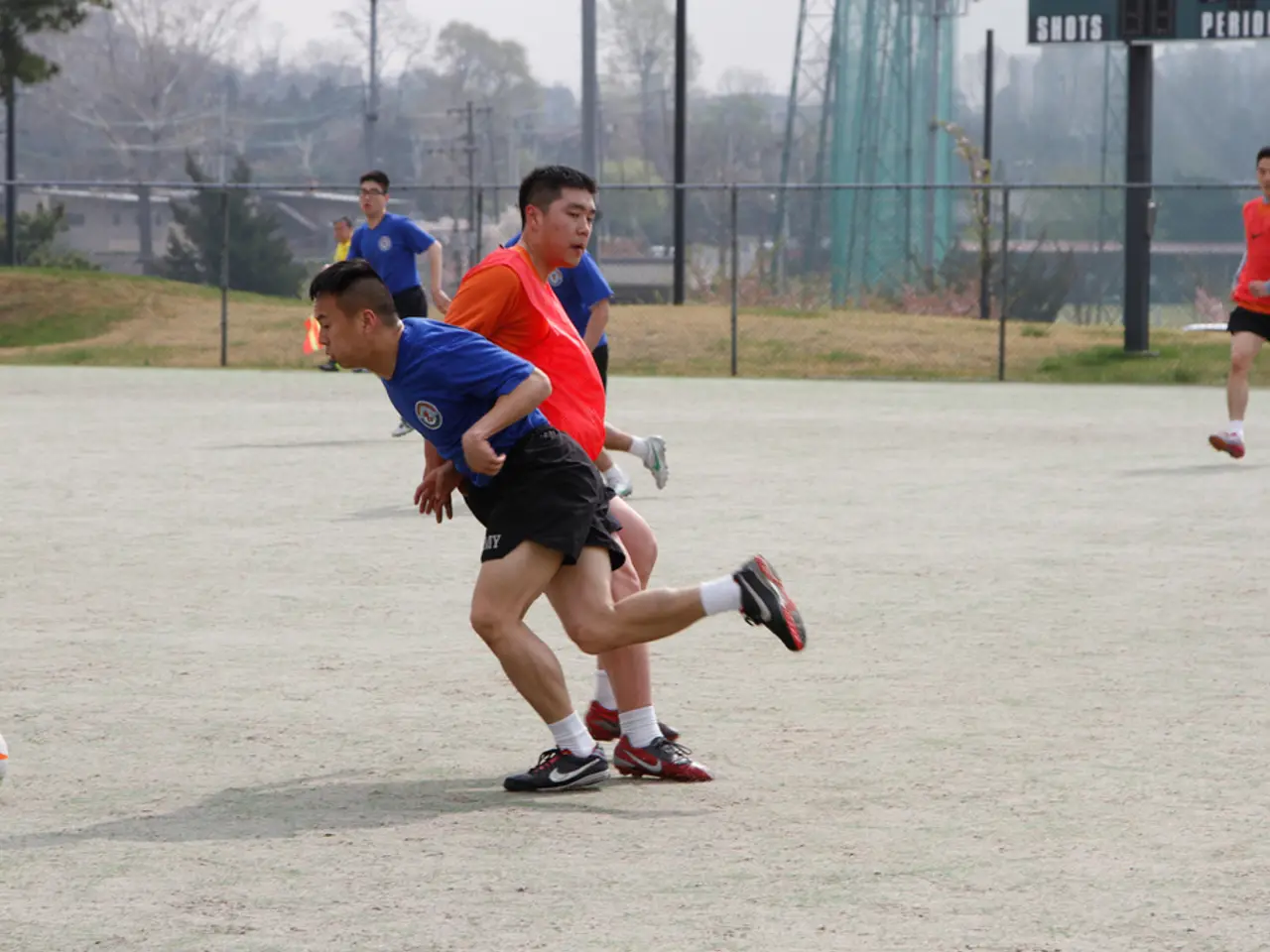Regulating Mental Strategies in Elite Soccer Athletes
In a groundbreaking study published in the Proceedings of the National Academy of Sciences USA, researchers have shed light on the cognitive abilities of professional soccer players, suggesting that these skills could revolutionize player recruitment, team strategies, and individual coaching.
The study, led by Leonardo Bonetti of Aarhus University and the University of Oxford, focused on the cognitive skills of professional soccer players from Brazil and Sweden. Using the design fluency test to assess cognitive abilities, the researchers found that players exhibited exceptional cognitive capabilities, such as working memory, planning, problem-solving, and executive function.
One key aspect of the players' cognitive profile is their superior ability to anticipate and recognize patterns. Skilled players can rapidly anticipate opponents' actions by integrating visual cues, prior tactical knowledge, and contextual information into domain-specific long-term working memory, enabling them to recognize play patterns quickly without overloading short-term memory.
Another significant finding is the players' executive functions, including superior processing speed, selective attention, and working memory. These skills are crucial for monitoring dynamic gameplay, making split-second decisions, and executing precise motor responses. While acute training improves processing speed and attention, higher-order executive functions like cognitive flexibility may require longer interventions.
Players also demonstrate exceptional spatial intelligence and the ability to handle complex cognitive loads on the pitch. This high spatial awareness allows them to effectively perceive, decide, and act in a fast-paced and unpredictable environment.
The study also highlighted the importance of adaptive learning through feedback. The players' cognition involves a cyclical process of perception, action, outcome assessment, and feedback-based learning, continuously refining anticipatory and decision-making skills essential for elite performance.
The research team compared over 200 professional soccer players from Brazil and Sweden to a control group of Brazilian nonathletes with similar educational backgrounds. The study underscores the multifaceted nature of athletic performance and the complex interplay between mind and body in achieving sporting excellence.
The study was co-authored by Predrag Petrovic, a clinical neuroscience expert, and Jaap Oosterlaan, a professor of pediatric neurosciences. While Oosterlaan raised concerns about the potential influence of physical training on athletes' cognitive functions, the conclusion emphasizes the delicate balance of mental acuity and physical prowess in a player's success.
The cognitive abilities of players may prove to be the defining factor in shaping the future of soccer. As teams and coaches increasingly understand and harness these abilities, we may witness a new era of strategic play and individual development in the beautiful game.
[1] Bonetti, L., et al. (2021). Exceptional cognitive capabilities in professional soccer players. Proceedings of the National Academy of Sciences USA. [2] Oosterlaan, J. (2021). Commentary: Cognitive abilities in soccer players. Proceedings of the National Academy of Sciences USA. [3] Petrovic, P. (2021). Response: Cognitive abilities in soccer players. Proceedings of the National Academy of Sciences USA.
- The study in the Proceedings of the National Academy of Sciences USA, led by Leonardo Bonetti, reveals that education-and-self-development programs focusing on sports like football (soccer) could benefit from incorporating learning strategies that reinforce cognitive abilities such as working memory, planning, problem-solving, and executive function.
- Environmental factors, like the presence of outdoor sports facilities, might crucially impact not only the physical development of young athletes but also their cognitive skills, as shown in the study on professional soccer players from Brazil and Sweden.
- As sports like soccer (football) increasingly attract attention for their cognitive benefits, one might consider a more comprehensive approach in education that combines learning and sports, blurring the traditional boundaries between discipline areas.
- To understand the full impact of physical training on athletes' cognitive functions, future research could explore the effectiveness of incorporating environmental enrichment and cognitive training programs in the education of young athletes, focusing on the improvement of executive functions, processing speed, selective attention, and working memory.




